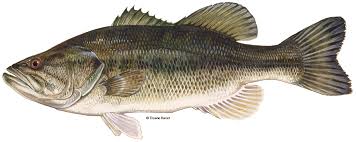Whether Departments of Natural Resources (DNRs) should permit or even encourage harvesting more largemouth bass to improve future fishing prospects is a hot topic among anglers and conservationists. We must examine the complex interplay of fish population dynamics, habitat management, and angling culture to answer it.
The Problem: Too Many Small Bass
In many U.S. waters, largemouth bass populations suffer from overabundance of smaller fish, known as stunted bass. These smaller bass dominate due to limited resources, particularly in bodies of water with less-than-optimal forage or habitat. Stunted populations can lead to:
- Decreased Growth Rates: With too many mouths to feed, individual fish struggle to find sufficient prey, resulting in slower growth.
- Unbalanced Ecosystems: Overpopulated bass can deplete prey species, causing ripple effects.
- Fewer Trophy-Sized Bass: Trophy bass require abundant food and room to grow, but competition from smaller bass hinders this potential.
The Case for Harvesting More Largemouth Bass
1. Encouraging Selective Harvest
Allowing anglers to keep smaller bass can alleviate overpopulation. By thinning out the numbers, resources become more available for remaining fish, promoting healthier and faster growth rates. For example, in Texas, the Texas Parks and Wildlife Department implemented slot limits to encourage anglers to keep fish within specific size ranges, with impressive results in producing trophy bass.
2. Habitat and Forage Improvements
Many fisheries can handle higher harvest levels of smaller bass if coupled with efforts to enhance habitat and forage availability. Stocking baitfish like shad or bluegill alongside vegetation management can support healthier bass populations.
3. Behavioral Impacts
Overcrowded waters often lead to wary, hook-shy fish. Removing smaller fish may make bass populations more receptive to angling, improving the overall fishing experience.
Angler Resistance: The Catch-and-Release Culture
The rise of the catch-and-release ethic has created a strong cultural norm among bass anglers. While this practice is essential in some contexts, excessive catch-and-release can exacerbate overpopulation in lakes where small bass are too abundant. Educating anglers about the benefits of selective harvest may be key to balancing conservation with recreational needs.
The Risk of Overharvest
Conversely, poorly managed harvest policies could lead to overharvest, especially in small or fragile fisheries. Ensuring sustainable harvest levels requires:
- Regular fish population surveys.
- Adaptive management strategies.
- Angler compliance with harvest guidelines.
The Future of Trophy Bass Fishing
To sustain and even enhance trophy bass fishing in America, a shift in mindset and policy may be needed:
- Education Campaigns: Anglers need clear information on how keeping small bass can lead to healthier ecosystems and more trophy fish.
- Scientific Management: DNRs must tailor regulations to specific bodies of water based on fishery data, adjusting limits as needed.
- Community Involvement: By involving anglers in management decisions, DNRs can foster a cooperative approach to preserving the future of bass fishing.
Conclusion
Our love for largemouth bass doesn’t have to spell the downfall of trophy fishing in America. Instead, it can catalyze more innovative management and angler participation. Killing more small bass under guided regulations could ultimately lead to better fishing experiences and healthier ecosystems, ensuring that future generations can enjoy the thrill of catching trophy largemouths.

